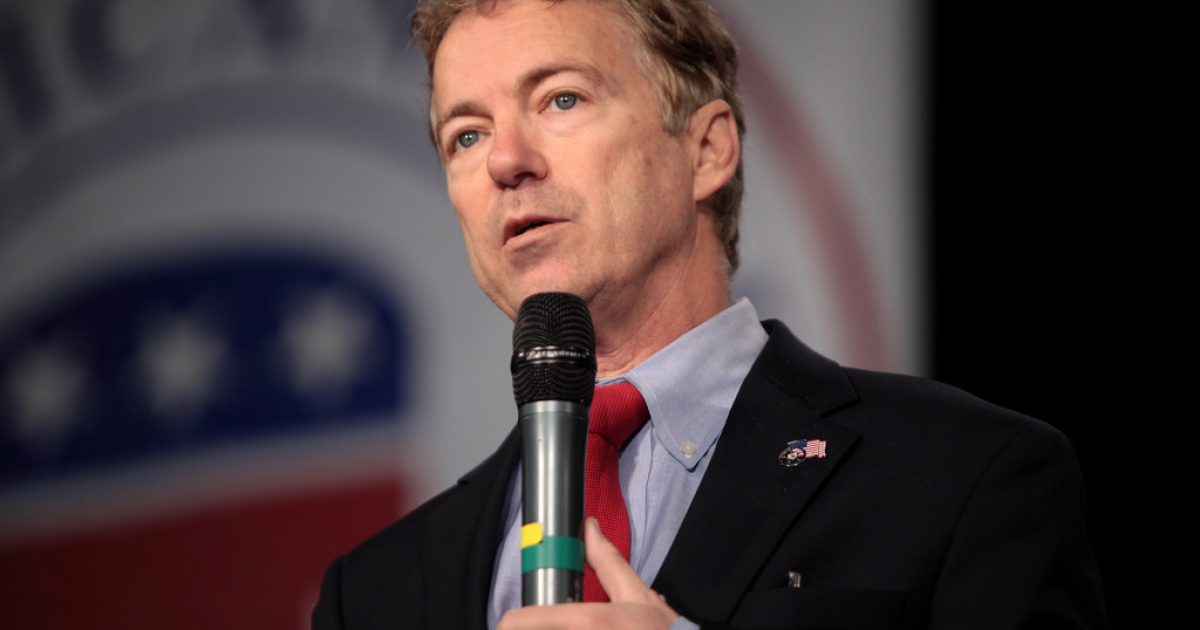
Senator Rand Paul is standing up to Neocons in Congress by introducing legislation to end American involvement in Afghanistan.
The freedom-loving Senator just introduced the “AFGHAN Service Act,” which will put an end to the armed conflict that has been going on since October 2001.
Paul has a track record of showing restraint towards American intervention, and has been a fierce critic of U.S. efforts in the region.
The Senator took to his Twitter page to make his announcement:
“This week, I am introducing legislation to end a war that should have ended long ago, the war in Afghanistan. The United States has been fighting the War on Terror since October of 2001 and it has cost 6 trillion dollars.”
Paul’s legislation would give out a $2,500 “victory bonus” to everyone who served during the War on Terror. According to Paul’s estimates, this one-time bonus would cost $7 billion.
Last year, President Trump announced his plan to withdraw troops from Syria and Afghanistan. When Trump announced his decision, Paul immediately supported the President, and defended him despite a concerted wave of bipartisan criticism.
A good first step, this bill will face considerable roadblocks given the military-industrial complex’s hold over the Senate. This was on display when Senate neocons voted for a resolution to block Trump’s withdrawal plans in Afghanistan and Syria.
With neocons like John Bolton undermining Trump’s America First foreign policy in countries like North Korea and Venezuela, the road to a restrained foreign policy will be tough.
However, someone will have to step up to the plate and confront the neocons. Senators like Rand Paul should be lauded for their efforts to the break the neocon status quo of perpetual wars.
As the great Randolph Bourne said, “War is the Health of the State”. The warfare state is one of the greatest enablers of government growth, and its continuance will most certainly put the United States on the brink of fiscal collapse.
Getting out of Afghanistan would be a great first step in bringing sanity to U.S. foreign policy.



